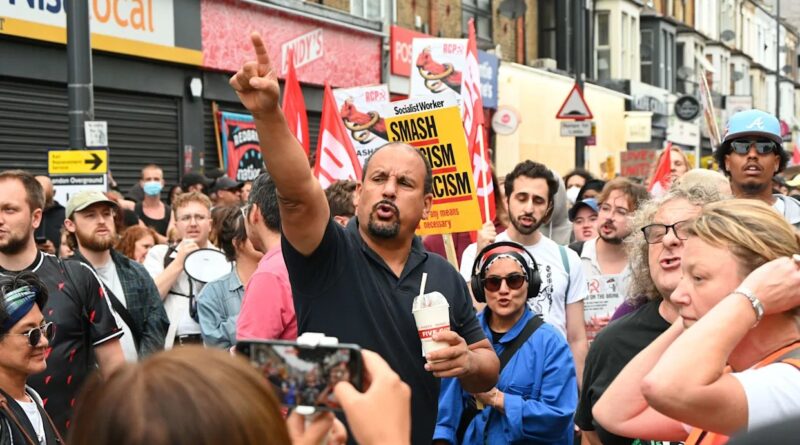A Victory for Freedom of Speech: The Ricky Jones Case and the Power of Context
The UK legal system has handed down a decision that, while controversial, may ultimately serve as a significant win for freedom of speech. Labour councillor Ricky Jones, 58, was found not guilty of encouraging violent disorder following a case that has sparked widespread debate on social media and beyond. The evidence? A video showing Jones speaking at a protest, where he appeared to suggest cutting the throats of far-right protesters. Yet, after a mere 30-minute deliberation, a jury acquitted him.
Far from being a miscarriage of justice, this outcome highlights the importance of context in interpreting inflammatory words and the application of the “reasonable person” test—a cornerstone of UK law that protects free expression. Here’s why I believe this is a good result, despite the outrage it has provoked.
The “reasonable person” test, a legal standard in the UK, asks whether a hypothetical reasonable individual would interpret and act upon certain words or actions. In Jones’ case, the court appears to have considered the circumstances surrounding his statement. Protests are often heated, emotional affairs where strong language is not uncommon. The video, while shocking to some, was delivered in a public setting with a clear political context—opposition to far-right ideologies. The jury likely concluded that no reasonable person would take Jones’ words as a literal call to violence, but rather as hyperbole or an expression of frustration. This interpretation aligns with the principles outlined in the Human Rights Act 1998, which incorporates Article 10 of the European Convention on Human Rights, guaranteeing limited freedom of expression.
This decision contrasts with past cases where individuals have faced prosecution for inflammatory online posts. However, a critical distinction emerges: those convicted in similar situations, such as the 2024 cases referenced on X, all pled guilty. By doing so, they waived their chance to have a court assess the context or apply the reasonable person test. The court, left with little choice, imposed sentences—some of which I would argue were unduly harsh given the lack of a full trial to explore intent or context. Jones, by contrast, pled not guilty, allowing the judicial process to unfold and ultimately vindicate him. To date, no one who has pled not guilty in relation to this event has been convicted, suggesting the courts are taking a measured approach to distinguishing between genuine threats and rhetorical excess.
This outcome sets an important precedent. It reaffirms that freedom of speech, while not absolute in the UK, is robust enough to withstand provocative language when the intent and context do not support a reasonable expectation of violence. The 2013 Defamation Act and subsequent legal reforms emphasize balancing free speech with public safety, and Jones’ acquittal demonstrates that courts are capable of making nuanced judgments.
The X posts from users like @DaveBar23804336 and @MaizyDaizyZzzz express disbelief and frustration, with some suggesting corruption or inconsistency. However, the lack of convictions among not-guilty pleas suggests a pattern of judicial restraint rather than bias. Critics might point to the Lammy Review (2017), which highlighted ethnic and racial disparities in sentencing—such as black defendants being 240% more likely to receive custodial sentences than white defendants. While this raises valid concerns about systemic inequities, Jones’ case does not appear to fit this pattern. His acquittal, regardless of his political affiliation, indicates that the court prioritized evidence and context over public pressure or political leanings
The Harshness of Guilty Pleas For those who pleaded guilty in similar circumstances, the sentences in my view have indeed been overly severe. Without a trial to assess intent or the reasonable person standard, the court had to rely on the admission of guilt, often leading to mandatory minimums or harsher penalties under the Crime and Disorder Act 1998. This procedural difference underscores a key takeaway: pleading guilty can strip away the opportunity for a court to exercise discretion. Jones’ case, by contrast, allowed for a full exploration of the facts, resulting in a verdict that protects both justice and free expression.
Looking Forward The Ricky Jones verdict is not a free pass for inflammatory rhetoric. It is a reminder that context, intent, and the reasonable person test are critical safeguards in a free society. While the video may have offended many—and I acknowledge the discomfort it caused—the law must protect the right to speak provocatively, especially in the heat of political discourse, unless there is clear evidence of incitement. Again, The absence of convictions among not-guilty pleas in this event suggests the UK judiciary is striking a careful balance, and that is something to celebrate. Of course, this case will continue to fuel debate. Reform UK MP Nigel Farage’s earlier call for Jones’ arrest reflects the polarized views on X, where users like @benonwine question how such words could go unpunished. Yet, the legal system’s response—rooted in evidence rather than emotion—offers hope that freedom of speech can endure, even in turbulent times. As John Milton argued in his 1644 work *Areopagitica*, the pursuit of truth requires the liberty to express controversial ideas. Today’s ruling echoes that sentiment, and for that, it is a step in the right direction.
*What are your thoughts? Share your views in the comments below, and let’s continue this conversation!* — *Note: This blog post is based on the information available as of 02:23 PM BST on August 15, 2025, and reflects the author’s opinion. Always consult legal professionals for advice on specific cases.*

